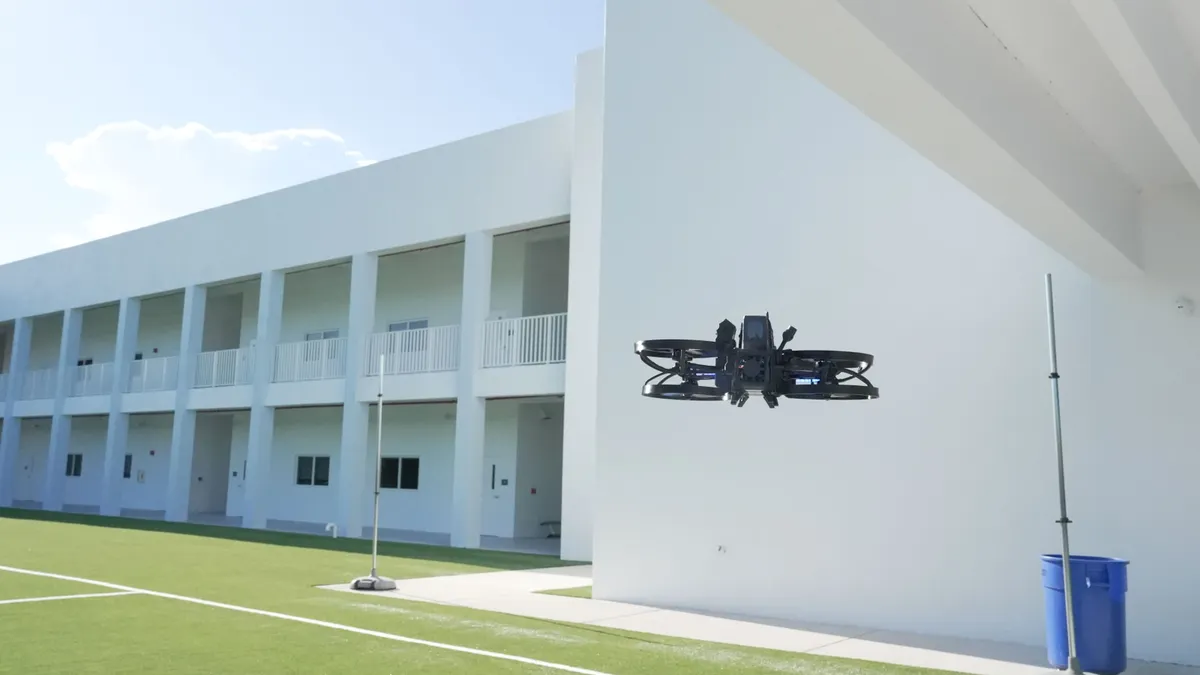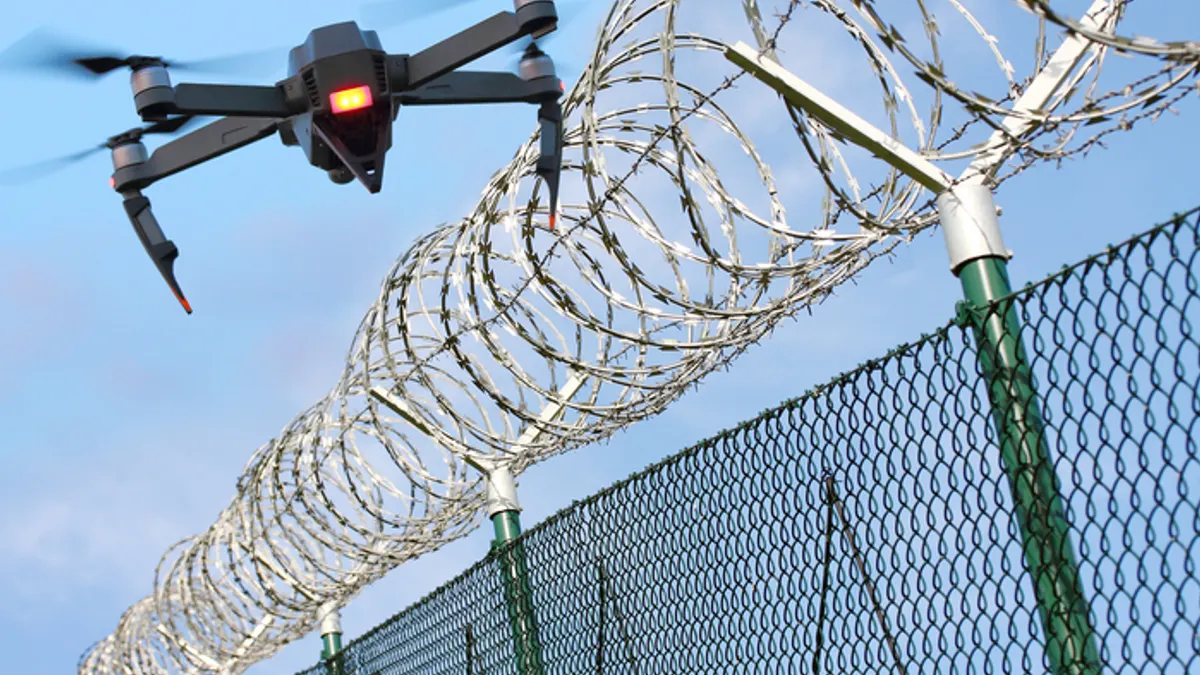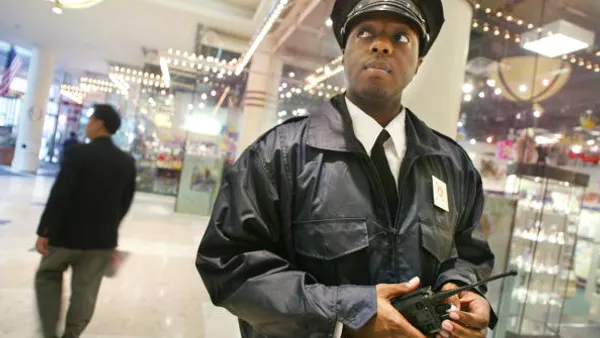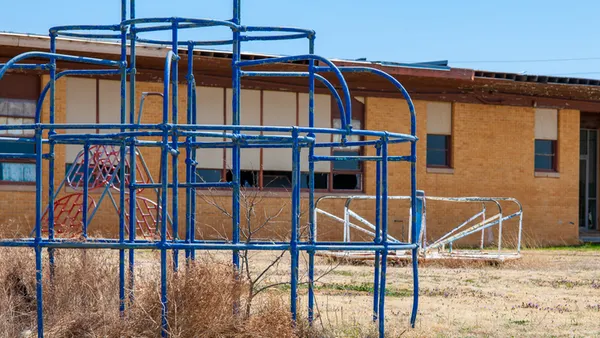Schools in three districts in Florida will be testing the use of drones armed with nonlethal weapons to respond more forcefully to active shooter incidents, the company involved in the initiative told Facilities Dive.
Lawmakers in the state approved $557,000 in the 2025-2026 state budget to pay for the demonstrations using drones operated by Texas-based company Campus Guardian Angel. The Florida Department of Education will select the districts, according to a CBS News report. Miami-Dade County Public Schools has shown interest in participating, CBS reported.
More than 60 school shootings have been reported in Florida since 2018, Newsweek reported, based on data from the K-12 School Shooting Database.
The drones are stored on-site on charging pads in secure boxes. School officials can activate them using a silent alarm or other mechanisms, the company says. Once activated, the drones can get anywhere on school grounds within 15 seconds, according to Justin Marston, the company’s CEO and cofounder. Once airborne, they offer two-way communication through an embedded speakerphone. They also can break glass, make loud noises, fire nonlethal pepper-spray pellets or take other action within a minute as a first response to an incident.
"In a school shooting, most of the death happens in the first 120 seconds, so it's really about how quickly can you get there to engage the shooter,” Marston said in the CBS News report.
“We’re trying to buy the time that it takes for a human to get there,” said Bill King, the company’s chief tactical officer and cofounder, in a NewsNation report.
Campus Guardian Angel operators control the drones from an operations center in Texas. Once the drones are activated, a company commander uploads a digital map of the school, issues a flight plan and coordinates tactical movements with the school and law enforcement and makes decisions on engagement. FAA-certified pilots fly the drones.
Local law enforcement and first responders can see what’s happening on video and coordinate with the drone commander; the two-way communications and other features on the drone also can support those on site, the company says.
"We feed live video to police, show exactly what's happening, where the suspect is, and even smash through windows with a glass punch to create distractions,” Marston told Newsweek.
The pilots include former drone racers and military and police veterans, according to the company. “Our elite team … has saved hundreds of lives and logged tens of thousands of hours of professional drone piloting,” the company says on its website.
At a demonstration of the drones at AcadeMir Preparatory High School in South Miami-Dade, the company showed how the drones are capable of using what the company calls “kinetic energy hits” to knock someone over.
Once the Florida DOE selects the districts, they’ll pay about $1,000 per month for the drones needed for a school of 500 students, according to Marston.
A box of six drones with all networking and response effects costs $15,000, the company says on its website. Schools will need between three and 15 boxes, sometimes more, depending on the size of the campus, the company estimates.
In Texas, installations are underway in four school districts and a university, Marston said in the CBS News report. The company has also conducted demonstrations in Colorado and Utah, the NewsNation report says.















